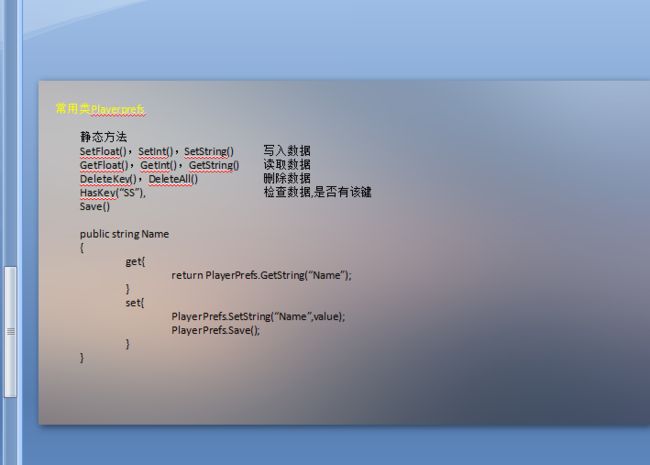- 了解B/S架构
Ashman.se
计算机语言架构
一.B/S的概念B/S(Brower/Server,浏览器/服务器)模式又称B/S结构,是Web兴起后的一种网络结构模式。Web浏览器是客户端最主要的应用软件。这种模式统一了客户端,将系统功能实现的核心部分集中到服务器上,简化了系统的开发、维护和使用;客户机上只需要安装一个浏览器,服务器上安装SQLServer,Oracle,MySql等数据库;浏览器通过WebServer同数据库进行数据交互。二
- Gerrit多仓库对应多邮箱配置办法
养乐多好喝
gitgerritgerrit配置gerrit多仓库gerrit多邮箱
工作中,我们可能需要配置多个仓库对应不同的邮箱来拉取代码,本文讲解在windows下如何正确配置。例如我们需要同时拉取仓库A和仓库B的代码,A对应邮箱
[email protected],B对应邮箱
[email protected]。第一步修改config文件打开C:\Users\yours.ssh文件夹,找到config文件,使用文本编辑器打开,一般你会看到如下内容:Host192.168.xxx.xxx//
- 齁甜!大小姐她被腹黑大佬掐腰宠(沈今岁、周晏琮)全文免费阅读无弹窗大结局_(齁甜!大小姐她被腹黑大佬掐腰宠)沈今岁、周晏琮最新章节列表_笔趣阁(齁甜!大小姐她被腹黑大佬掐腰宠)
霸道推书3
小说名:《齁甜!大小姐她被腹黑大佬掐腰宠》主角配角:沈今岁、周晏琮简介:她,豪门千金,长得明艳美丽,简直就是有钱有颜的代表。却没想,她还能被渣?更离谱的是,她男友脚踏两条船,还让她成他的跟?跟个头,他也配?她火速和渣男分手,进入新生活。遇到京圈太子爷后,她终于知道什么才是真正的爱情。比起渣男,太子爷他尊重她,爱护她,这才是良配。结婚后,人人都说联姻没有爱情,他们用实际行动向众人证明,他们是妥妥的真
- 但行好事,莫问前程
奔跑吧cece
最近两个月的疫情,牵动着国内外每个人的心,外有文艺范日本,钢铁直男俄罗斯等国的鼎力相助,内有各大企业,明星,慈善机构的捐款,还有很多的社会群体,个人的捐赠。昨天在我们小区妈妈群,有个特别热心的邻居,看到朋友圈有个医生朋友发的物资捐赠需求,想着组织大家一起联系捐赠实物给到需要的医院,尽一点绵薄之力。从提出想法,联系两家医院后勤负责人,明确可捐赠的食品,物流等,我们临时组建了一个8人的捐献后勤小组。财
- 测试用例要如何写
测试界茜茜
软件测试测试用例功能测试软件测试自动化测试程序人生职场和发展
1、测试点与测试用例测试点不等于测试用例,这是我们首先需要认识到的。问题1:这些测试点在内容上有重复,存在冗余。问题2:一些测试点的测试输入不明确,不知道测试时要测试哪些。问题3:总是在搭相似的环境,做类似的操作。问题4:测试点描述得太粗,不知道是不是测对了。测试点是测试者在测试时需要关注的地方。虽然我们在分析测试点时,会使用各种测试方法,但这些方法在思路和操作上都是不同的,一些方法得到的测试点要
- 人生匆匆
菩提树下一沙粒
图片发自App想起去年此时,我还在忙着为父亲挑选生日礼物,而今,他已孤独地躺在冰冷的黄土下。似乎一霎那,一眨眼的功夫,一年,几十年,就此匆匆而过。人的一生,何其短暂?看自己,初二那年被几何老师狠批的情形犹在眼前,可时间已过了三十年。今天和女儿谈起此事,她竟当故事,听得津津有味,还不时地瞅我一下,眼角全是狡黠的笑,似乎在说“原来妈妈也会当众哭鼻子呀!”是啊,我们已从青葱少年,转眼间长成了满腹心事的中
- 金型人格的修炼
蒋沅臻_cb46
姓名~沅臻【日精进打卡第46天】【知~学习】1.耳语练习30分钟NG2.有声阅读文章1篇OK3.看书30分钟OK4.运动30分钟NG5.扫除整理OK【行~实践】一、修身:(对自己个人)1、找爸爸好处第16天。二、齐家:(对家庭和家人)今天上课,没有接到弟弟的电话。三、建功:(对工作)1、经营者传习之旅第一天,今天接受的信息有点多,需要花时间好好消化。2、找到了金型人格的修炼方向。{积善}:发愿从2
- keepalived的工作原理与配置
皮蛋solo.粥
云计算网络云计算linux
Keepalived的工作原理基于VRRP(虚拟路由冗余协议)和LVS(Linux虚拟服务器),通过多层次协作实现服务器的高可用性和负载均衡。以下是其核心机制的详细说明:一、VRRP协议基础VRRP(VirtualRouterRedundancyProtocol)是Keepalived实现高可用的核心协议,其作用是:将多台服务器组成一个虚拟路由器,对外提供一个统一的虚拟IP(VIP)。通过选举机制
- keepalived案例
皮蛋solo.粥
云计算chrome前端运维
案例一:Web服务器高可用集群场景:为Nginx构建双节点热备,确保服务连续性架构图Client→VIP(192.168.1.100)↓+----------------++----------------+|Master(1.10)||Backup(1.11)||Keepalived||Keepalived||Nginx||Nginx|+----------------++-----------
- 我的老大,我的礼物
叶子手札
我是叶子,两娃妈。心理学工作者,从事中小学心理健康教育工作13年。这是我第53篇原创手稿。上周,和朋友们聊天的时候,被她们说,你看,你每次讲到老二,眼神流露出满满的爱和欣赏,说老二是老大的礼物。这对待老大和老二的差别很大啊。已经不止一个人和我提及这个差异了。是的,我自己也很清楚,老二确实让我省心放心许多,他爱吃,能睡,待人大方主动,积极向外探索。只是偶尔闹闹小脾气,还有点小倔强。可在他爸看来,这个
- C语言面向对象编程
小恶魔巴巴塔
c语言开发语言
1.内核通用链表一、什么是list_head?list_head是Linux内核中自己实现的一种双向循环链表的结构,定义在中。它设计得非常轻巧、灵活,广泛用于内核模块、驱动、进程调度、网络协议栈等。它的关键思想是:将链表结构嵌入到你的数据结构中,从而实现通用链表操作。二、结构定义structlist_head{structlist_head*next,*prev;};每一个list_head实际就
- 郑州一模答案
你的光芒
语文试题答案1.(3分)shàn覆赋(每字1分,共3分)2.(5分)示例:辩论共四个环节(1分);立论阶段由双方的一辩正面论述己方观点:(1分)攻辩阶段由双方二辩提出质疑并回答对方提问:(1分)然后自由辩论,双方辩手可轮流发言,强调己方观点的同时进行反驳;(1分)最后总结陈词,双方三简总结。每一环节均不超过3分钟。(1分)3.(8分)①人生自古谁无死②留取丹心照汗青③苦将依强派作蛾眉④长风破浪会有
- spring--事务失效原因
你我约定有三
数据库sqljava后端spring
✅一、事务失效的常见原因及对应场景1.方法不是public的✅原因:SpringAOP默认使用基于代理的方式(JDK或CGLIB),只能拦截public方法。❌错误示例:@TransactionalvoidsaveData(){//非public,事务无效...}✅正确写法:@TransactionalpublicvoidsaveData(){...}2.同类中方法调用,导致自调用(SelfInv
- 2023-03-30
每日心流
202303309:0501昨天和前天都在织小背心,一共化了一整天时间就织完了。挺好的,就是有些长了,不如原版的简单。25公分差不多了。肩带好像是35公分左右。色彩上还是不会搭。有点贪,什么都想搭进去。其实简单点好。还想织一件纯色的,织简单点好了,短一点。学会V领了,就是中间的挑还不会。还会小燕子收针法了。边针织,右片留三针,把第三针放到第一针前,就是第二针放到后面,第三针不织,第一针织好剥收左片
- Apache Ignite 索引(Indexes)定义和使用
lang20150928
其他apacheIgnite
这段内容是关于ApacheIgnite中如何定义和使用索引(Indexes)的说明。下面我将为你逐段解释这段内容的含义,并帮助你理解ApacheIgnite中SQL索引机制的核心概念。一、索引的定义原文:InadditiontocommonDDLcommands,suchasCREATE/DROPINDEX,developerscanuseIgnite’sSQLAPIstodefineindexe
- Oracle修改表结构的基本sql语句
--修改字段名称altertable表名renamecolumn现在的字段名to新字段名;--修改表名altertable表名renameto新表名;--修改字段数据类型altertable表名modify字段名新数据类型(长度);--在表中新增字段altertable表名add新字段名新数据类型(长度)[约束,例如:notnull等]comment'comment是添加字段描述,可加可不加';-
- pyside6使用1 窗体、信号和槽
一、概要由于作者前期很多年都在使用C++和Qt框架进行项目的开发工作,故可以熟练的使用Qt框架。Qt框架在界面设计以及跨平台运用方面,有着巨大的优势,而界面设计恰恰是python的短板,故使用pyside6实现python和Qt的互补。1.1pyside6安装更新pip工具:pipinstall--upgradepip命令行执行如下指令:pipinstallpyside6-ihttps://pyp
- 达达日记第三十二篇
豪达兄弟
今天我很开心,因为我喜欢玩平板,读书,我还喜欢放风筝。我们在公园放风筝了,放风筝的时候需要抓住手把,而且想加高的时候就用手转黑色的手把。我买的是一个毛头鹰的风筝,放风筝需要两个人配合,一个拉着线,一个人拿着风筝,两个人跑着跑着把风筝往一扔,风筝就飞起来了。我们放完风筝就回家了,我们回家之后我爸爸给我炖大雁肉吃了,我很喜欢吃大雁肉,我吃饱之后洗洗手玩了一会平板,哥哥就去发阅读了。等哥哥发完阅读我们就
- 20210515成长日记
samantha
1.呼吸法。2.柠檬水,西芹汁,果汁。3.小米粥午餐。4.拆书法学习1)本周的学习,我的目标是什么?了解拆书法,学会拆读一本书。2)整个听课和作业完成的过程中发生了什么?a.听着老师的讲课和完成作业,一层层升级了自己的拆书思维。打开了新的思维,不正确的学习方式让我产生焦虑,追逐干货。大量的听课追逐干货,如果能把这些学到的用到极致就是最大的成长和收获。听课的过程中有陷入知识为中心的思维而去记录老师说
- 拼多多SQL面试题:连续3次为球队得分的球员名单
连续3次为球队得分的球员名单1.数据准备createtabletb_score(team_nameVARCHAR(50)COMMENT'球队名称',player_idINTCOMMENT'球员ID',player_nameVARCHAR(50)COMMENT'球员姓名',scoreINTCOMMENT'得分',score_timeDATETIMECOMMENT'得分时间');INSERTINTOt
- 去摘草莓
狼的传人_d7f8
昨天我和爸爸妈妈还有弟弟一起去摘草莓。我们摘了很多很多又美味又香甜的草莓,有大的有小的。小小的就像一粒大米,大大的,就像是一个乐高房子一样。我摘了些吃了点儿。我尝了尝好香好甜呀!
- 男士着装规则--绅士的你知道多少?
翟夏妍形象礼仪培训师
在职场,成败往往取决于细节之处。“男人穿规则,女人穿魅力”这是我经常在课堂上提到的一句话,那么对于男士的穿衣规则到底都有哪些渊源和细则,今天夏妍老师就详细给大家讲一讲。国际着装规则的绅士文化,发端于英国,发迹于美国,系统化于日本。有针对不同人群发挥着不同的作用。“THEDRESSCODE”是针对社交界、时尚界和奢侈品的专用名词,特指国际通用绅士着装规则。表示特定人群用于特定场合,特定时间和特定地点
- RabbitMQ------发布确认(单个确认、批量确认、未确认)(四)
RabbitMQ------发布确认(四)发布确认原理生产者将信道设置为confirm模式,一旦信道进入confirm模式,所有再该信道上面发布的消息都会被指派一个唯一的ID(从1开始),一旦消息被投递到所有匹配的队列后,broker就会发送一个确认给生产者(包含消息的唯一ID),这就使得生产者知道消息已经正确到达目的地的队列了,如果消息和队列是可以持久化的,那么确认消息就会将消息写入磁盘之后发出
- 走出去才能看到更美的风景
向行
今天在小区散步,还没到7:00七点刚好是夜幕降临。天边的晚霞甚是美丽,风也很舒服。在节气上来说早已经到了,秋天可是在南方的天气里依然还是那么炎热。看着远处的晚霞美不胜收,微风习习。三三五五散步的人,跑步的人,这画面很是和谐。看着脚下的人在跑步,心里顿生羡慕。虽然只是慢跑,但是看他们大汗淋漓的样子就知道特别爽。我摸着自己吃得圆鼓鼓的肚子,心里觉得惭愧啊。要不是因为今天穿着拖鞋,可能我也要跑上一场。看
- 冬
M大拖鞋
暖人的阳光下三平米阳台懒散的坐着想着一切想到的只是金黄窗外只是不剩衣着的枝干它们脱下了一切能脱下的不明白不会懂它们不能说它们不能叫懒散地坐着就着醉人的光咽下苦涩的茶水吐出云朵
- ❤️好巧,怎么说的是你。
我是你的傻蛋呀
图片发自App一直觉得,喜欢截屏聊天记录的人,对于幸福的感受,都不是那么清晰。大概是太没有安全感了,所以才总是想要寻找一些证据,来证明自己遇到的是爱情。才会在看到那些用文字表达出来的爱意时,就迫不及待地截图保存。以为那些字句,就是他爱你的表现。真正的爱情哪里需要证明,他爱不爱你,没有人比你更清楚了。为什么生活中有那么多女生喜欢截屏?说到底还是因为他给的爱太少了啊,少到你只能通过那些没有温度的文字,
- 技术演进中的开发沉思-43 DELPHI VCL系列:Framework的历史
chilavert318
熬之滴水穿石delphiVCLwindows
Delphi是我参加工作继VC++接触的第二个开发工具,若把程序员写界面的工作比作木匠做家具,WindowFramework就像一代代升级的工具箱。我没像我的前辈用C语言写Windows窗口得手动调用几十行API——就像用凿子一点点凿出桌椅腿,每颗螺丝都得自己磨。而我是从Framework开发开始的,本质上是无数程序员把“磨螺丝”的经验攒成了现成工具,让后来者能专注于“设计家具样式”。一、Wind
- 程序人生之项目团队那些人与事(1)
chilavert318
熬之滴水穿石程序人生团队项目经理
序原本是打算继续温习我对于windows内核的理解的,已经写到我最为头疼的地方。说实话,把内核了解清楚,不是写几篇感悟就可以完全搞明白的。连日都开会,临近年底要参加很多会议,原本将每日更新技术贴的计划变得十分紧凑,思维也变得世俗起来。连日听各个项目汇报情况,怎会有这样或者那样的问题。似乎很多问题,我都似曾相识,但是为什么总会有人在重复着某些人的过去,这到底是为什么?看着工资条上工龄工资一栏,猛地意
- 熬之滴水穿石:JSP--HTML中的JAVA代码(1)
33--JSP的由来说实话,在B/S系统中我并没有多少前端开发的经验。03年由C/S转B/S后曾有那么短暂的时间写前台用过JSP。但大部分时间从事后台的开发,等04年当上项目经理后基本没有搞过Web页面的开发了。这些工作都是留给我的团队开发的,但是不管角色怎么变,对于技术上的理解和追求始终没变!03年JSPJavaBean开发应用系统,到06年时已经是Web2.0的时代了,07年还用了JSF。有些
- 减脂四部曲
我叫丁坚持
关于减脂,我们都话可说,又都无话可说,就像有句话说的那样,我懂得很多道理,仍旧过不好这一生。其实,之所以屡战屡败,还是方法不到位,时间再长,终究不过是小白。且看我的四部曲一、计划任何事情的开始都涉及到计划层面,拿减脂来说,你准备用多少时间减脂多少斤,时间不要拉太长,否则思想和嘴巴容易出轨,拿一个月来减脂5斤(基数大,更明显)来讲,还是可以的,只是减脂它包括:饮食、运动、心情、睡眠。没有节食,莫要节
- ztree异步加载
3213213333332132
JavaScriptAjaxjsonWebztree
相信新手用ztree的时候,对异步加载会有些困惑,我开始的时候也是看了API花了些时间才搞定了异步加载,在这里分享给大家。
我后台代码生成的是json格式的数据,数据大家按各自的需求生成,这里只给出前端的代码。
设置setting,这里只关注async属性的配置
var setting = {
//异步加载配置
- thirft rpc 具体调用流程
BlueSkator
中间件rpcthrift
Thrift调用过程中,Thrift客户端和服务器之间主要用到传输层类、协议层类和处理类三个主要的核心类,这三个类的相互协作共同完成rpc的整个调用过程。在调用过程中将按照以下顺序进行协同工作:
(1) 将客户端程序调用的函数名和参数传递给协议层(TProtocol),协议
- 异或运算推导, 交换数据
dcj3sjt126com
PHP异或^
/*
* 5 0101
* 9 1010
*
* 5 ^ 5
* 0101
* 0101
* -----
* 0000
* 得出第一个规律: 相同的数进行异或, 结果是0
*
* 9 ^ 5 ^ 6
* 1010
* 0101
* ----
* 1111
*
* 1111
* 0110
* ----
* 1001
- 事件源对象
周华华
JavaScript
<!DOCTYPE html PUBLIC "-//W3C//DTD XHTML 1.0 Transitional//EN" "http://www.w3.org/TR/xhtml1/DTD/xhtml1-transitional.dtd">
<html xmlns="http://www.w3.org/1999/xhtml&q
- MySql配置及相关命令
g21121
mysql
MySQL安装完毕后我们需要对它进行一些设置及性能优化,主要包括字符集设置,启动设置,连接优化,表优化,分区优化等等。
一 修改MySQL密码及用户
- [简单]poi删除excel 2007超链接
53873039oycg
Excel
采用解析sheet.xml方式删除超链接,缺点是要打开文件2次,代码如下:
public void removeExcel2007AllHyperLink(String filePath) throws Exception {
OPCPackage ocPkg = OPCPac
- Struts2添加 open flash chart
云端月影
准备以下开源项目:
1. Struts 2.1.6
2. Open Flash Chart 2 Version 2 Lug Wyrm Charmer (28th, July 2009)
3. jofc2,这东西不知道是没做好还是什么意思,好像和ofc2不怎么匹配,最好下源码,有什么问题直接改。
4. log4j
用eclipse新建动态网站,取名OFC2Demo,将Struts2 l
- spring包详解
aijuans
spring
下载的spring包中文件及各种包众多,在项目中往往只有部分是我们必须的,如果不清楚什么时候需要什么包的话,看看下面就知道了。 aspectj目录下是在Spring框架下使用aspectj的源代码和测试程序文件。Aspectj是java最早的提供AOP的应用框架。 dist 目录下是Spring 的发布包,关于发布包下面会详细进行说明。 docs&nb
- 网站推广之seo概念
antonyup_2006
算法Web应用服务器搜索引擎Google
持续开发一年多的b2c网站终于在08年10月23日上线了。作为开发人员的我在修改bug的同时,准备了解下网站的推广分析策略。
所谓网站推广,目的在于让尽可能多的潜在用户了解并访问网站,通过网站获得有关产品和服务等信息,为最终形成购买决策提供支持。
网站推广策略有很多,seo,email,adv
- 单例模式,sql注入,序列
百合不是茶
单例模式序列sql注入预编译
序列在前面写过有关的博客,也有过总结,但是今天在做一个JDBC操作数据库的相关内容时 需要使用序列创建一个自增长的字段 居然不会了,所以将序列写在本篇的前面
1,序列是一个保存数据连续的增长的一种方式;
序列的创建;
CREATE SEQUENCE seq_pro
2 INCREMENT BY 1 -- 每次加几个
3
- Mockito单元测试实例
bijian1013
单元测试mockito
Mockito单元测试实例:
public class SettingServiceTest {
private List<PersonDTO> personList = new ArrayList<PersonDTO>();
@InjectMocks
private SettingPojoService settin
- 精通Oracle10编程SQL(9)使用游标
bijian1013
oracle数据库plsql
/*
*使用游标
*/
--显示游标
--在显式游标中使用FETCH...INTO语句
DECLARE
CURSOR emp_cursor is
select ename,sal from emp where deptno=1;
v_ename emp.ename%TYPE;
v_sal emp.sal%TYPE;
begin
ope
- 【Java语言】动态代理
bit1129
java语言
JDK接口动态代理
JDK自带的动态代理通过动态的根据接口生成字节码(实现接口的一个具体类)的方式,为接口的实现类提供代理。被代理的对象和代理对象通过InvocationHandler建立关联
package com.tom;
import com.tom.model.User;
import com.tom.service.IUserService;
- Java通信之URL通信基础
白糖_
javajdkwebservice网络协议ITeye
java对网络通信以及提供了比较全面的jdk支持,java.net包能让程序员直接在程序中实现网络通信。
在技术日新月异的现在,我们能通过很多方式实现数据通信,比如webservice、url通信、socket通信等等,今天简单介绍下URL通信。
学习准备:建议首先学习java的IO基础知识
URL是统一资源定位器的简写,URL可以访问Internet和www,可以通过url
- 博弈Java讲义 - Java线程同步 (1)
boyitech
java多线程同步锁
在并发编程中经常会碰到多个执行线程共享资源的问题。例如多个线程同时读写文件,共用数据库连接,全局的计数器等。如果不处理好多线程之间的同步问题很容易引起状态不一致或者其他的错误。
同步不仅可以阻止一个线程看到对象处于不一致的状态,它还可以保证进入同步方法或者块的每个线程,都看到由同一锁保护的之前所有的修改结果。处理同步的关键就是要正确的识别临界条件(cri
- java-给定字符串,删除开始和结尾处的空格,并将中间的多个连续的空格合并成一个。
bylijinnan
java
public class DeleteExtraSpace {
/**
* 题目:给定字符串,删除开始和结尾处的空格,并将中间的多个连续的空格合并成一个。
* 方法1.用已有的String类的trim和replaceAll方法
* 方法2.全部用正则表达式,这个我不熟
* 方法3.“重新发明轮子”,从头遍历一次
*/
public static v
- An error has occurred.See the log file错误解决!
Kai_Ge
MyEclipse
今天早上打开MyEclipse时,自动关闭!弹出An error has occurred.See the log file错误提示!
很郁闷昨天启动和关闭还好着!!!打开几次依然报此错误,确定不是眼花了!
打开日志文件!找到当日错误文件内容:
--------------------------------------------------------------------------
- [矿业与工业]修建一个空间矿床开采站要多少钱?
comsci
地球上的钛金属矿藏已经接近枯竭...........
我们在冥王星的一颗卫星上面发现一些具有开采价值的矿床.....
那么,现在要编制一个预算,提交给财政部门..
- 解析Google Map Routes
dai_lm
google api
为了获得从A点到B点的路劲,经常会使用Google提供的API,例如
[url]
http://maps.googleapis.com/maps/api/directions/json?origin=40.7144,-74.0060&destination=47.6063,-122.3204&sensor=false
[/url]
从返回的结果上,大致可以了解应该怎么走,但
- SQL还有多少“理所应当”?
datamachine
sql
转贴存档,原帖地址:http://blog.chinaunix.net/uid-29242841-id-3968998.html、http://blog.chinaunix.net/uid-29242841-id-3971046.html!
------------------------------------华丽的分割线--------------------------------
- Yii使用Ajax验证时,如何设置某些字段不需要验证
dcj3sjt126com
Ajaxyii
经常像你注册页面,你可能非常希望只需要Ajax去验证用户名和Email,而不需要使用Ajax再去验证密码,默认如果你使用Yii 内置的ajax验证Form,例如:
$form=$this->beginWidget('CActiveForm', array( 'id'=>'usuario-form',&
- 使用git同步网站代码
dcj3sjt126com
crontabgit
转自:http://ued.ctrip.com/blog/?p=3646?tn=gongxinjun.com
管理一网站,最开始使用的虚拟空间,采用提供商支持的ftp上传网站文件,后换用vps,vps可以自己搭建ftp的,但是懒得搞,直接使用scp传输文件到服务器,现在需要更新文件到服务器,使用scp真的很烦。发现本人就职的公司,采用的git+rsync的方式来管理、同步代码,遂
- sql基本操作
蕃薯耀
sqlsql基本操作sql常用操作
sql基本操作
>>>>>>>>>>>>>>>>>>>>>>>>>>>>>>>>>>>>
蕃薯耀 2015年6月1日 17:30:33 星期一
&
- Spring4+Hibernate4+Atomikos3.3多数据源事务管理
hanqunfeng
Hibernate4
Spring3+后不再对JTOM提供支持,所以可以改用Atomikos管理多数据源事务。Spring2.5+Hibernate3+JTOM参考:http://hanqunfeng.iteye.com/blog/1554251Atomikos官网网站:http://www.atomikos.com/ 一.pom.xml
<dependency>
<
- jquery中两个值得注意的方法one()和trigger()方法
jackyrong
trigger
在jquery中,有两个值得注意但容易忽视的方法,分别是one()方法和trigger()方法,这是从国内作者<<jquery权威指南》一书中看到不错的介绍
1) one方法
one方法的功能是让所选定的元素绑定一个仅触发一次的处理函数,格式为
one(type,${data},fn)
&nb
- 拿工资不仅仅是让你写代码的
lampcy
工作面试咨询
这是我对团队每个新进员工说的第一件事情。这句话的意思是,我并不关心你是如何快速完成任务的,哪怕代码很差,只要它像救生艇通气门一样管用就行。这句话也是我最喜欢的座右铭之一。
这个说法其实很合理:我们的工作是思考客户提出的问题,然后制定解决方案。思考第一,代码第二,公司请我们的最终目的不是写代码,而是想出解决方案。
话粗理不粗。
付你薪水不是让你来思考的,也不是让你来写代码的,你的目的是交付产品
- 架构师之对象操作----------对象的效率复制和判断是否全为空
nannan408
架构师
1.前言。
如题。
2.代码。
(1)对象的复制,比spring的beanCopier在大并发下效率要高,利用net.sf.cglib.beans.BeanCopier
Src src=new Src();
BeanCopier beanCopier = BeanCopier.create(Src.class, Des.class, false);
- ajax 被缓存的解决方案
Rainbow702
JavaScriptjqueryAjaxcache缓存
使用jquery的ajax来发送请求进行局部刷新画面,各位可能都做过。
今天碰到一个奇怪的现象,就是,同一个ajax请求,在chrome中,不论发送多少次,都可以发送至服务器端,而不会被缓存。但是,换成在IE下的时候,发现,同一个ajax请求,会发生被缓存的情况,只有第一次才会被发送至服务器端,之后的不会再被发送。郁闷。
解决方法如下:
① 直接使用 JQuery提供的 “cache”参数,
- 修改date.toLocaleString()的警告
tntxia
String
我们在写程序的时候,经常要查看时间,所以我们经常会用到date.toLocaleString(),但是date.toLocaleString()是一个过时 的API,代替的方法如下:
package com.tntxia.htmlmaker.util;
import java.text.SimpleDateFormat;
import java.util.
- 项目完成后的小总结
xiaomiya
js总结项目
项目完成了,突然想做个总结但是有点无从下手了。
做之前对于客户端给的接口很模式。然而定义好了格式要求就如此的愉快了。
先说说项目主要实现的功能吧
1,按键精灵
2,获取行情数据
3,各种input输入条件判断
4,发送数据(有json格式和string格式)
5,获取预警条件列表和预警结果列表,
6,排序,
7,预警结果分页获取
8,导出文件(excel,text等)
9,修
